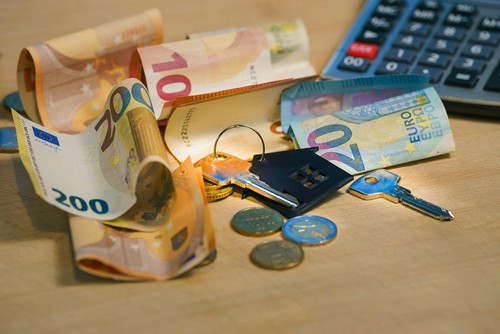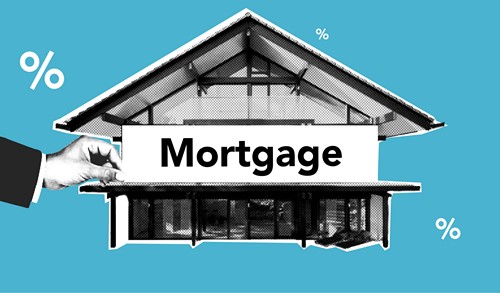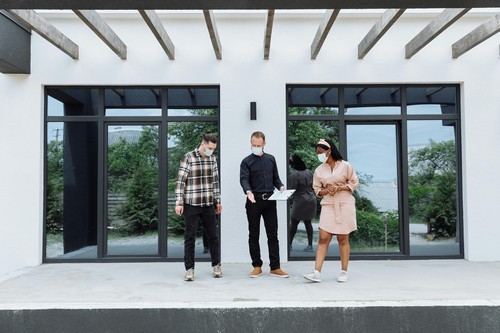How to Buy a House With Zero Down: Your Guide to No Money Down Mortgages

Buying a house with no money down may seem like an impossible dream, but it’s actually achievable if you know where to look. As a first-time homebuyer, there are several options available, including government-backed loans, assistance programs, and even creative financing strategies.
This article will guide you through the process of buying a home with little to no upfront costs. We’ll explore the pros and cons of each approach and help you determine which path is right for your unique situation.
By the end, you’ll have a clear understanding of how to make your homeownership dreams a reality without breaking the bank. Let’s dive in and explore the exciting possibilities of purchasing a home with no money down.
What Is a No Money Down Mortgage?
A no-down payment mortgage is a home loan that allows you to finance 100% of the home’s purchase price without having to put any money down at closing.
Types of Zero Down Payment Mortgage Programs
The two main types of loans that don’t usually require a down payment are VA loans and USDA loans:
- VA loans are available to eligible military service members, veterans, and surviving spouses. They offer 100% financing with no down payment required.
- USDA loans are for low to moderate income borrowers buying homes in designated rural areas. They also allow for 100% financing with no money down.
One-fifth (20%) of aspiring homeowners believe they won’t ever be able to save enough to buy a home, according to Bankrate’s 2024 Down Payment Survey. No-down mortgages can be particularly beneficial for first-time homebuyers or those with limited savings.
The perks are simple – you can get a mortgage to buy a home without having to put any of your own money down upfront. This means even those with minimal savings could potentially become homeowners.
 However, there are some downsides to consider:
However, there are some downsides to consider:
- You’ll have no equity built up in your home at the time of purchase. This means you won’t be able to tap into home equity for repairs, renovations or other expenses.
- You’ll likely be paying off the loan for longer than someone who made a down payment. This translates to paying thousands more in interest to the bank over the life of the mortgage.
If you don’t qualify for a VA or USDA loan, there are a few other potential paths to buying with no money down:
- Some lenders offer special programs for low to moderate income borrowers that allow for a 3% down payment to be covered by a deferred loan or the home seller.
- Your family or friends may be willing to gift you funds to cover the minimum down payment.
- Certain professionals, like doctors, with high student debt burdens may qualify for specialized physician mortgages that waive down payment requirements.
So while putting zero down isn’t an option for every buyer in every situation, it’s possible to get a no-down payment mortgage if you explore all your options. We’lll cover some alternatives next. If you have decided already then have a look at our list of properties in Ventura County.
Check your USDA loan eligibility. Start here. Get today’s low mortgage rates with no social security number required to get started. Also, if you have a bad credit instead of zero credit, we have a guide for bad credit house buying.
How to Qualify for a Zero Down Mortgage
 It’s possible to buy a home with no money down if you meet certain qualifications. The two main options for zero down mortgages are VA loans and USDA loans.
It’s possible to buy a home with no money down if you meet certain qualifications. The two main options for zero down mortgages are VA loans and USDA loans.
VA Loan Qualifications
VA loans are available to eligible military service members, veterans, and surviving spouses. Here’s what you need to qualify:
- A certificate of eligibility (COE) from the VA showing you have enough entitlement for a zero down loan
- A credit score of at least 580-620, although some lenders may require higher scores
- A debt-to-income ratio below 41%, with exceptions possible based on compensating factors
- Sufficient residual income after paying the mortgage and other debts
- Intention to occupy the home as your primary residence
Most veterans, active-duty service members, and honorably discharged personnel meet the service requirements. National Guard and Reserve members are eligible after 6 years of service. Surviving spouses of service members killed in the line of duty may also qualify.
USDA Loan Qualifications
USDA loans help low to moderate-income borrowers buy homes in designated rural areas. To be eligible, you must meet the following criteria:
- Household income not exceeding 115% of the area median income
- A credit score of at least 640
- A debt-to-income ratio under 41%
- Stable employment and income for the past 2 years
- U.S. citizenship or permanent residency
- Agree to occupy the home as your primary residence
The USDA’s definition of “rural” is quite broad, with about 97% of the U.S. landmass meeting the eligibility requirements. However, the home itself must also meet certain standards, such as:
- Square footage under 2,000 sq ft
- No in-ground swimming pool
- Typical amenities for the area
Working with a USDA-approved lender is necessary, as not all lenders offer this program. With the right qualifications and a home that meets USDA standards, you could finance 100% of your home’s purchase price. You can also have a look at our featured property listings in Ventura Country.
Low Down Payment Mortgage Options
If you can’t qualify for a no-down-payment mortgage, don’t worry – there are still several low-down-payment options available. These programs allow you to buy a home with as little as 3% down, making homeownership more accessible.
Conventional 97 Loans
The Conventional 97 loan, also known as the Fannie Mae Standard 97% LTV loan, is a great choice for first-time homebuyers. It requires just a 3% down payment and has no income or neighborhood limitations. To qualify, you’ll need:
- A credit score of at least 620
- A debt-to-income (DTI) ratio of 45% or less
- Private mortgage insurance (PMI), which can’t be canceled
At least one borrower must be a first-time homebuyer, meaning they haven’t owned real estate in the last 3 years.
FHA Loans
FHA loans, backed by the Federal Housing Administration, offer down payments as low as 3.5%. They’re designed to help low to moderate-income households achieve homeownership and are popular among first-time buyers. Benefits include:
- Lower credit score requirements (minimum 580)
- Higher debt-to-income ratio allowed (up to 50%)
- Options for those with lower credit scores to qualify
However, FHA loans require mortgage insurance premiums (MIP) for the life of the loan if your down payment is less than 10%. The home must also be your primary residence and meet certain livability standards.
HomeReady and Home Possible Loans
Fannie Mae’s HomeReady and Freddie Mac’s Home Possible programs offer conventional loans with 3% down payments for low to moderate-income borrowers. Key features include:
- Flexible sources of funds for down payments and closing costs
- Reduced mortgage insurance requirements
- Homeownership education to prepare buyers
Income limits apply based on the property location, and at least one borrower must complete a homeownership education course.
Down Payment Assistance Programs
Many states, counties, and cities offer down payment assistance (DPA) programs to help homebuyers cover down payment and closing costs. These programs typically provide:
- Grants that don’t need to be repaid
- Low-interest loans that may be forgiven over time
- Deferred loans with no payments until you sell or refinance
Eligibility for DPA programs varies by location and often depends on factors like income, occupation, and whether you’re a first-time homebuyer. Research programs in your area to see if you qualify.
Pros and Cons of Buying a House With No Money Down
 Buying a home with no money down can be an attractive option, but it’s important to weigh the advantages and disadvantages before making a decision. Let’s take a closer look at the pros and cons of no-down-payment mortgages.
Buying a home with no money down can be an attractive option, but it’s important to weigh the advantages and disadvantages before making a decision. Let’s take a closer look at the pros and cons of no-down-payment mortgages.
Advantages
- Faster path to homeownership: One of the biggest benefits of buying a house with no money down is that it can significantly speed up your journey to homeownership. Instead of spending years saving for a down payment, you can start building equity in your home right away.
- More cash for other expenses: By not putting any money down, you’ll have more cash available for closing costs, moving expenses, and any immediate home improvements or repairs you may need to make.
- Opportunity to invest elsewhere: The money you would have used for a down payment can be invested in other areas, such as stocks, bonds, or a retirement account, potentially earning you a higher return over time.
Disadvantages
- Higher monthly payments: With no money down, you’ll be financing a larger loan amount, which means your monthly mortgage payments will be higher. This can put a strain on your budget, especially if you have other debts or expenses to manage.
- More interest paid over time: Since you’re borrowing more money, you’ll end up paying more in interest over the life of the loan. This can add up to tens of thousands of dollars in extra costs compared to a mortgage with a down payment.
- No equity at purchase: When you buy a home with no money down, you’ll have no equity in the property at the time of purchase. This means you won’t be able to tap into your home’s value right away if you need cash for emergencies or other expenses.
- Private mortgage insurance (PMI): Most lenders require borrowers who put less than 20% down to pay for private mortgage insurance, which protects the lender in case of default. PMI can add hundreds of dollars to your monthly mortgage payment until you reach 20% equity in your home.
- Greater risk of negative equity: If home values in your area decline, you could end up owing more on your mortgage than your home is worth. This situation, known as negative equity or being “underwater,” can make it difficult to sell or refinance your home if needed.
Tips for Buying a House With Little to No Money Down
There are several strategies that can help make the dream of homeownership a reality, even with limited funds for a down payment. Here are some tips to consider when buying a house with little to no money down:
Improve Your Credit Score
A good credit score is crucial when seeking a mortgage with a low or no down payment. It can help you secure better interest rates and loan terms. To boost you credit score you should:
- Pay all bills on time
- Keep credit utilization low (under 30% of credit limits)
- Avoid applying for new credit accounts before applying for a mortgage
- Dispute any errors on credit report
Shop Around for Lenders
Different lenders offer various loan programs and rates, so it’s essential to compare options:
- Get quotes from multiple lenders, including banks, credit unions, and online lenders
- Compare interest rates, fees, and loan terms
- Look for lenders that specialize in low or no down payment mortgages
- Consider local credit unions and community banks, as they may have more flexible criteria
Consider a Co-Borrower
Purchasing a home with a partner or friend can halve the down payment burden, but careful planning and clear agreements are essential:
- Discuss how mortgage loan payments, maintenance, and other expenses will be shared
- Consider involving a lawyer to draft a co-ownership agreement that protects both parties
- Address ownership, payments, and contingencies in case of disputes or changes in circumstances
Negotiate Seller Concessions
Seller concessions can significantly lower the immediate financial burden for the buyer, making the process of purchasing a home more accessible:
- Negotiate with the seller to pay a portion or all of my closing costs
- Keep in mind that the maximum amount of seller concessions allowed varies depending on the type of mortgage I choose
- Consider the long-term impact of a higher interest rate on my monthly mortgage payments and the total cost of my loan over time if I opt for lender-paid closing costs
By implementing these strategies and exploring the various low and no down payment mortgage options available, you can make significant strides toward achieving homeownership goals without a substantial upfront investment.
Alternatives to Buying With No Money Down
If you are unable to qualify for a no money down mortgage, there are still several options to consider. By exploring these alternatives, you can work towards the goal of homeownership while minimizing upfront costs.
Save Up for a Down Payment
One of the most straightforward alternatives to buying a house with no money down is to simply save up for a down payment. You can create a budget, cut back on unnecessary expenses, and allocate more of my income towards saving for a down payment. Even if you can only afford to put down 3-5%, it’s still better than nothing and can help qualify for a wider range of mortgage options.
To boost my savings, you can:
- Automate my savings by setting up regular transfers to a dedicated down payment fund
- Look for ways to increase my income, such as taking on a side job or freelance work
- Consider downsizing my living arrangements temporarily to reduce my expenses and save more
Tap Into Retirement Funds
If you have a 401(k) or IRA, I may be able to tap into these retirement funds to help cover down payment. Many 401(k) plans allow participants to borrow up to 50% of their vested balance, up to a maximum of $50,000, for a home purchase. You will need to repay the loan with interest, but the interest goes back into my account.
Another option is to withdraw funds from my IRA. You can withdraw up to $10,000 from my IRA for a first-time home purchase without incurring the usual 10% early withdrawal penalty. However, you will still need to pay income taxes on the withdrawal.
Before tapping into retirement funds, you should:
- Check with your plan administrator to understand the specific rules and requirements
- Consider the long-term impact on my retirement savings
- Consult with a financial advisor or tax professional to understand the implications
Ask for Gift Funds From Family
If you have family members who are willing and able to help, you can ask for gift funds to put towards down payment. Gift funds can come from a parent, grandparent, sibling, or other relative. Some lenders may also allow gifts from close friends.
To use gift funds for my down payment, you will need to:
- Provide documentation showing the funds are a gift and not a loan
- Have the gifter write a letter stating the money is a gift and doesn’t need to be repaid
- Receive the gift funds well in advance of closing, as lenders typically require the funds to be in your account for at least 60 days
It’s important to note that there may be tax implications for the gifter, depending on the amount of the gift. Encourage them to consult with a tax professional to understand the potential impact.
Conclusion
Buying a house with no money down is possible, and having explored various options like VA loans, USDA loans, and assistance programs that can help achieve homeownership goals. While there are advantages to this approach, such as a faster path to ownership and more cash for other expenses, you wil need to weigh them against potential drawbacks like higher monthly payments and interest costs.
By improving your credit score, shopping around for lenders, and considering alternatives like saving for a down payment or seeking gift funds from family, you can increase chances of success.
What is a zero-down mortgage?
A zero-down mortgage is a type of home loan that allows you to buy a home without putting any money down. This means you can finance 100% of the home’s purchase price.
Are there specific types of zero-down payment mortgage options available?
Yes, several options exist for zero-down payment mortgages, including VA home loans for eligible veterans and active-duty service members, as well as USDA loans for homes in rural areas.
Who is eligible for a VA home loan?
To qualify for a VA home loan, you typically need to be a veteran, active-duty service member, or a qualifying surviving spouse. VA loans do not require a down payment and have favorable terms for first-time home buyers.
Can a first-time home buyer use a zero-down mortgage to purchase a house?
Absolutely! First-time home buyers can take advantage of zero-down mortgage options, making it easier to buy a home without needing money for a down payment.
What are the minimum credit score requirements for a zero-down payment mortgage?
The minimum credit score requirement varies by mortgage lender and loan type. VA home loans typically require a credit score of 620 or higher, while USDA loans may allow lower scores depending on the lender.
How can I find a mortgage lender that offers zero-down payment options?
You can find a mortgage lender by researching online, asking for referrals from friends or family, and comparing different lenders’ zero-down mortgage offers. It’s essential to evaluate their terms and conditions.
Is it possible to buy a home without putting any money down if I have poor credit?
While having poor credit can make it more challenging to secure a zero-down mortgage, some lenders may still offer options. It’s advisable to work on improving your credit score and explore specific programs designed for first-time home buyers.
What is the benefit of using a zero-down payment mortgage?What is the benefit of using a zero-down payment mortgage?
The primary benefit of using a zero-down payment mortgage is that it allows you to buy a home sooner without needing to save for a down payment. This can be particularly helpful for first-time home buyers or those looking to buy a home in a competitive market.
Are there any hidden costs associated with zero-down mortgages?
Yes, while zero-down mortgages eliminate the need for a down payment, you may still face other costs such as closing costs, private mortgage insurance (PMI), and higher interest rates. Always review all potential costs with your mortgage lender.
